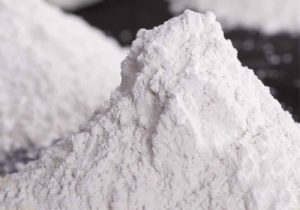
CP-10 Organoclay
CP-10 organoclay is a rheological additive made of organoclay. It is used in non-polar to moderately polar aliphatic and other solvent systems
Organic Rheology Modifiers are the ideal solution we have for you. These additives will assist you in getting the outcomes you desire, and they are also environmentally friendly. Our pre-activated Organic Rheology Modifiers thickener provides excellent anti-sagging and anti-settling properties while being simple to us
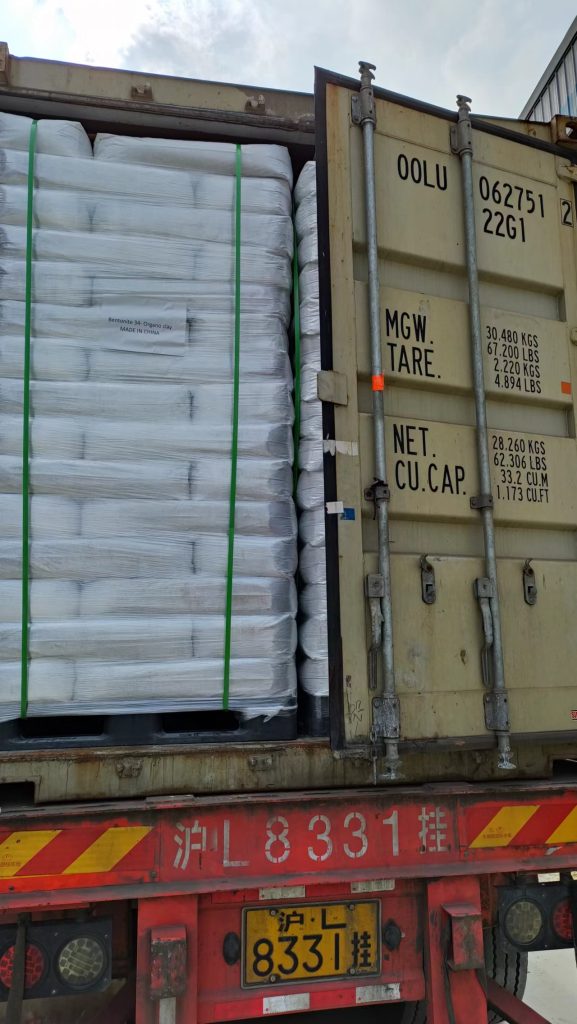

CP-10 organoclay is a rheological additive made of organoclay. It is used in non-polar to moderately polar aliphatic and other solvent systems

CP-MPZ organoclays is an modified bentonite that is used in solvent and resin systems ranging from non-polar to highly polar.

The CP-MPS rheology modifier is a type of organo clay rheological additive that is used in solvent and resin systems ranging from non-polar to high polarity.
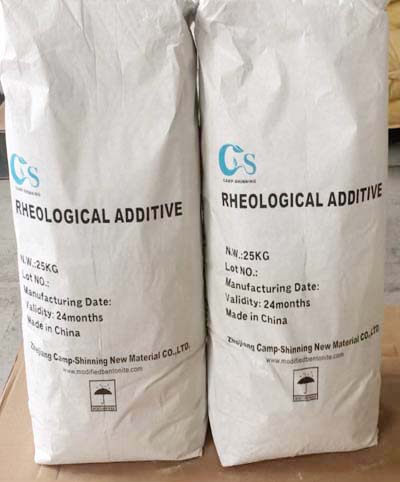
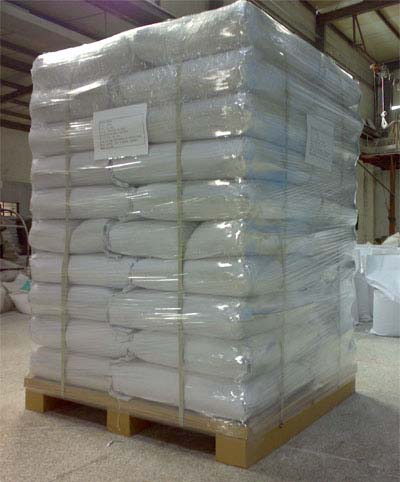
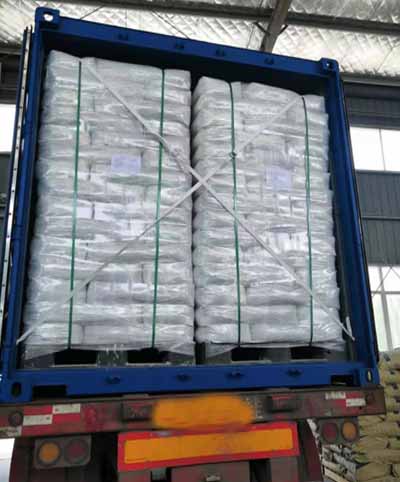
Organoclay Supplier / Manufacturer :
Internet address: https://www.rheologymodifiers.com/
Email address: [email protected]
Whatsapp / Wechat: +86-13185071071
Organophilic Clay Supplier / Manufacturer :

CP-EW Organoclay for Water Based paint. It is primarily employed in water borne paint systems,such as latex paint. So it is a good water based additive in paints,coatings,grease etc.

CP-EWS Modified bentonite It is employed in a water-borne coatings system. CP-EWS organoclay outperforms CP-EW in terms of thixotropy, transparence, and dispersion.

CP-WBS Rheology Modifier is rheological modified bentonite. It is mostly employed in water-borne systems.


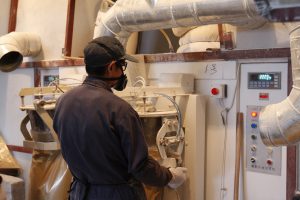
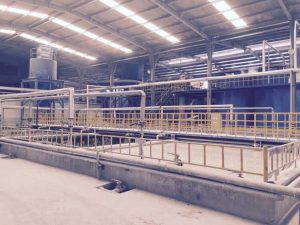

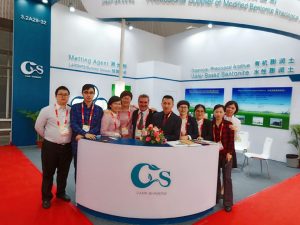
The Organoclay bentonite | Organophilic clay -specialized Zhejiang Camp-Shinning New Material CO.,LTD. and Hangzhou Camp-Shinning CO.,LTD. are subsidiaries of Camp-Shinning.
Camp-shinning concentrated on high value-added, high-technology organo bentonite series products, particularly in research, development, manufacturing, and sales of organic (solvent based organoclay) and inorganic bentonite (water based organoclay).
Our Organophilic bentonite clay finds widespread application in oil drilling mud, paint, coating, lubricating grease, adhesive, construction mortar, cosmetics, and waste water treatment, among other applications. A group of world-class professional users and distributors, such as SUN CHEMICAL,,SIEGWERK,LEHMANN &VOsS, and others, have acknowledged our dependable quality.
Current annual production of organic bentonite clay | organoclay is 20,000 metric tons, while refined bentonite production is 15,000 metric tons.
Our ISO 9001 quality system certification and IS014001 environmental management system certification, as well as our own mine with superior ore quality and production of proprietary technology, ensure the long-term quality and supply stability of our Organoclay bentonite | Organophilic clay.
Our mission is to provide users with superior Organoclay bentonite | Organophilic clay and services and to collaborate with them to achieve success and glory.
Internet address: https://www.rheologymodifiers.com/ and email address: [email protected]
Whatsapp / Wechat: +86-13185071071
Organic Rheology Modifiers
If you are seeking organic rheology modifiers, you have arrived to the right location. This article will discuss the rheology modifiers CP-40 and Organoclay. By the conclusion of this essay, you will have a better grasp of these chemicals and how they might aid your manufacturing process.
Organic Rheology Modifiers
Organoclay rheology modifiers are additives that can be used to modify the viscosity of paints. These chemicals can prevent sagging, enhance leveling characteristics, and minimize leaking. They can also improve the coating’s storage and transport qualities. However, when adding an organoclay thickening, it is essential to examine the paint kinds that will be treated, as well as the type and timing of the thickener.
Rheology modifiers are additives that alter the viscosity and gelling characteristics of a substance. Typically, they are composed of bentonite clay or modified organoclay. They are effective in both waterborne and solvent-based systems. These additives are extremely effective and ideal for compositions with high viscosity and low shear.
Rheology modifiers are utilized in numerous fields, including oilfield drilling and the cosmetics industry. These additions can alter a formulation’s viscosity and texture, hence altering its ultimate qualities. This is very good for skin moisturizing products. The use of organoclay rheology modifiers to cosmetic formulations can assist manage viscosity and enhance the sensory qualities of the final products.
Two basic kinds of organoclay rheology modifiers exist. The CP-10 kind is hydrophilic and boosts storage modulus. A secondary emulsifier, CP-APA is the second type of emulsifier. The hydrophilic and lipophilic characteristics of CP-10 set it apart from other rheology modifiers.
Organoclay is produced by treating bentonite with an amine. These clays have superior rheological qualities and enhance the paint suspension properties. They are less expensive than other clays and more stable than others. They are also utilized in numerous applications.
Organoclay rheology modifier compounds are noted for their resistance to sagging and contain salt and calcium montmorillonites. However, their influence on high-shear rate viscosity is minimal. Organoclay rheology modifiers are frequently combined with other additives to improve low-end rheology and reduce dynamic sag for these reasons.
Another benefit of organoclay rheology modifiers is that they can be utilized in large quantities without negatively altering a system’s viscosity. This makes them a great option for applications requiring heavier adhesives, such as coatings and other applications. In addition, they can be used with organic or inorganic pigments to improve visual effects.
Compounds that modify the rheology of organoclay can be employed in both aqueous and non-aqueous settings. Viscosity-increasing organoclay rheology modifiers can be used to raise the viscosity of clear solutions, which typically contain pigments.
Compounds that modify the rheology of organoclay are utilized in the creation of oil and gas dispersions. Additionally, they are excellent for improving the low end rheology of low density inversion emulsion drilling fluid. Depending on the application requirements, the concentration of these substances in the drilling fluid will vary.
Organic Rheology Modifiers CP-34
The organic rheology modifier CP-34 is generated from bentonite clay. It is employed in a number of products as a thickening, anti-settling, and anti-foaming agent. It is a good choice for cosmetic compositions due to its characteristics.
This polymer is an alkali-swellable, highly cationic polyacrylate crosspolymer. While stabilizing and suspending water-thin surfactants, it produces exceptional clarity and a graceful flow. It has high pH stability and is ideal for thickening formulations containing at least 10% active surfactants.
The organic rheology modifier CP-34 has superior viscosity and wetting properties. It can be included into cosmetic formulas and several personal care items. It is offered as a white powder that is biodegradable, low in toxicity, and non-drippable.
Organoclay Supplier / Manufacturer :
Internet address: https://www.rheologymodifiers.com/
Email address: [email protected]
Whatsapp / Wechat: +86-13185071071
Organophilic Clay Supplier / Manufacturer :

CP-180 organoclay is an organo clay rheological additive (modified montmorillonite) designed specifically for use in solvent-based systems

CP-34 organoclay is a modified bentonite that has been specifically designed for use in solvent-based systems.

CP-EDS modified bentonite is a kind of organo clay rheological additive. It is used in systems of medium polarity and high polarity system.

CP-992 Organophilic Clay, the wet process improved viscosifier and gelling agent . It is a rapidly dispersing.

CP-982 Organophilic Clay is an amine treated bentonite with a moderate temperature performance.

CP-150 Organophilic Clay is a self-activating organoclay that disperses easily and performs well in diesel, low aromatic mineral oil, modified vegetable oil, and synthetic base fluid formulations.
Organic Rheology Modifiers